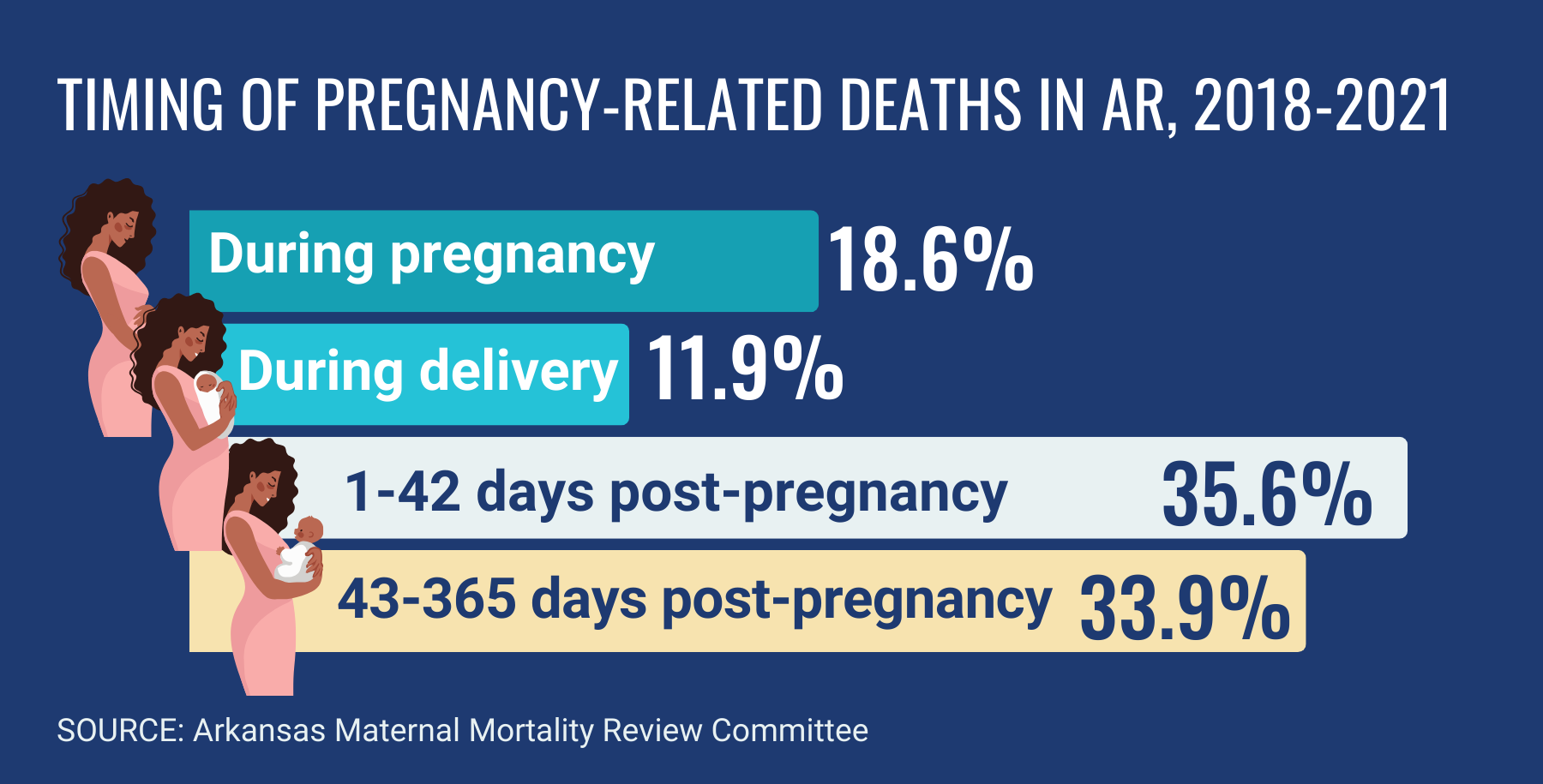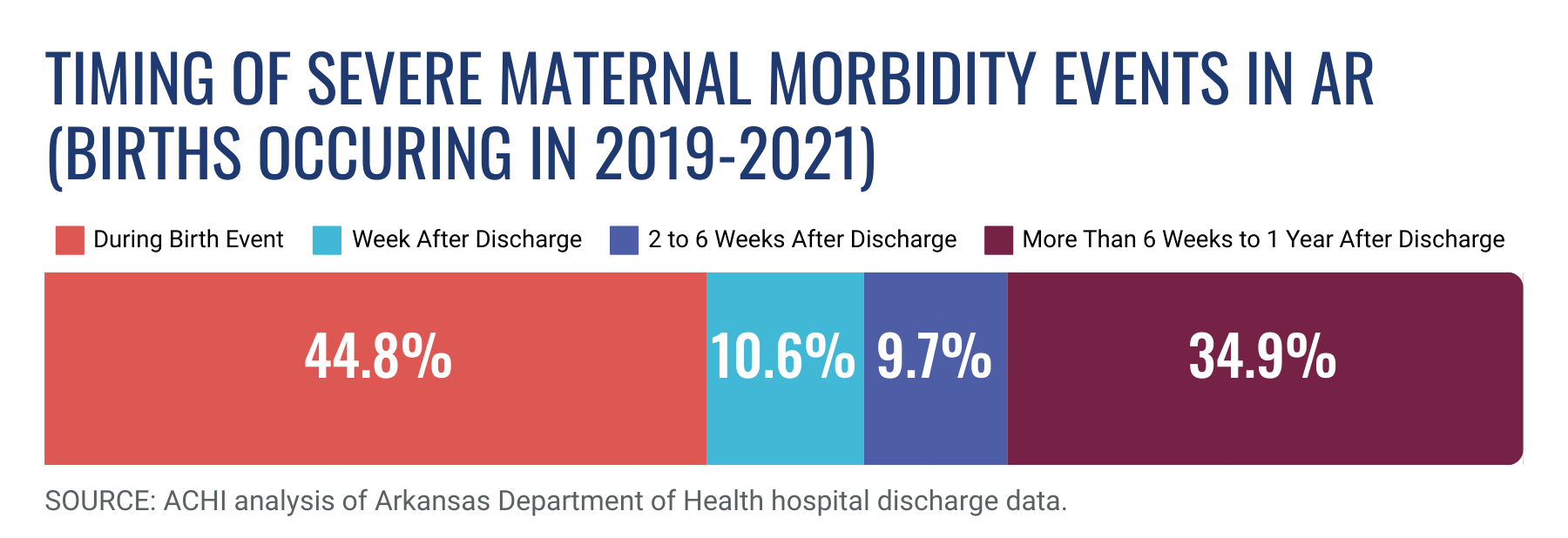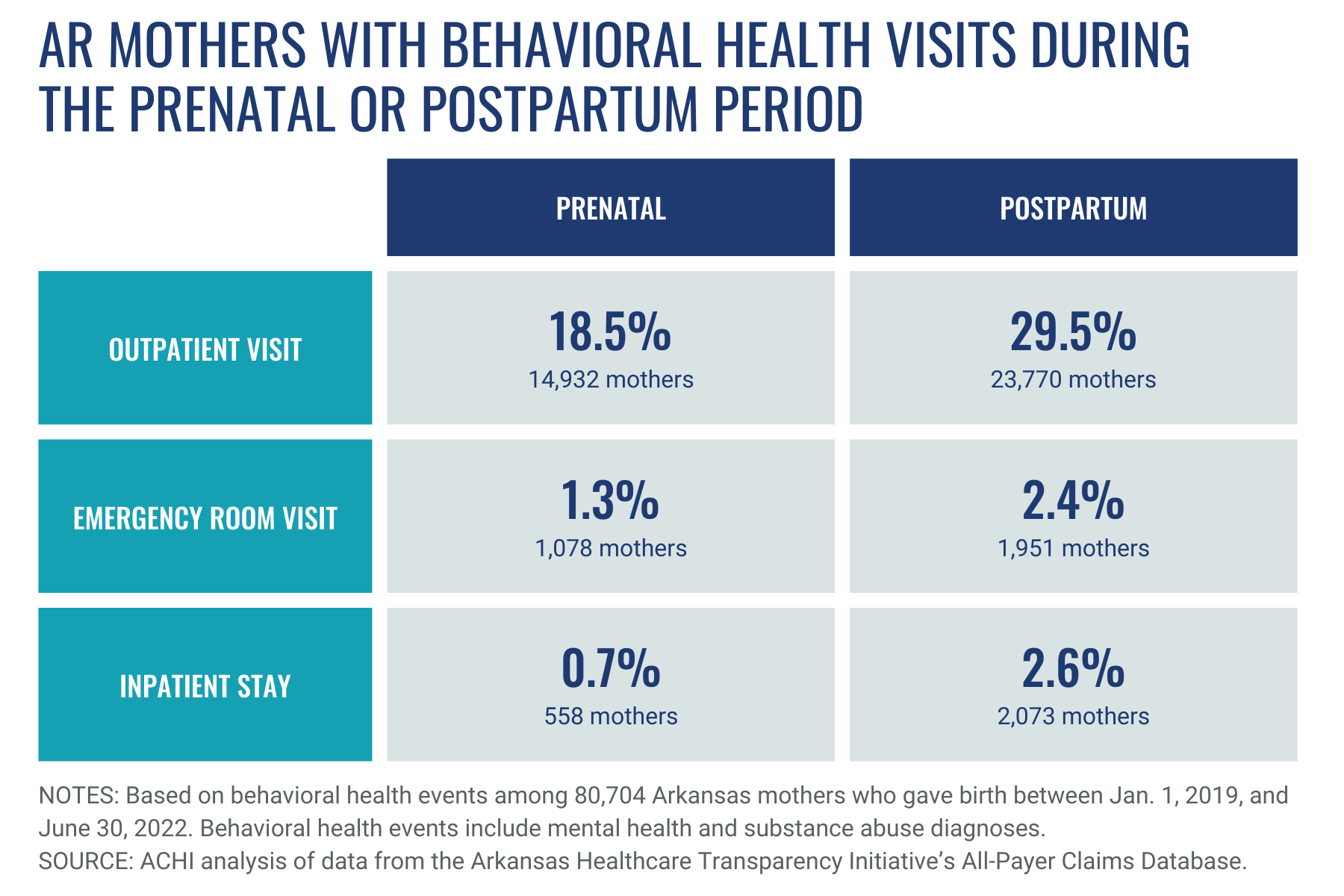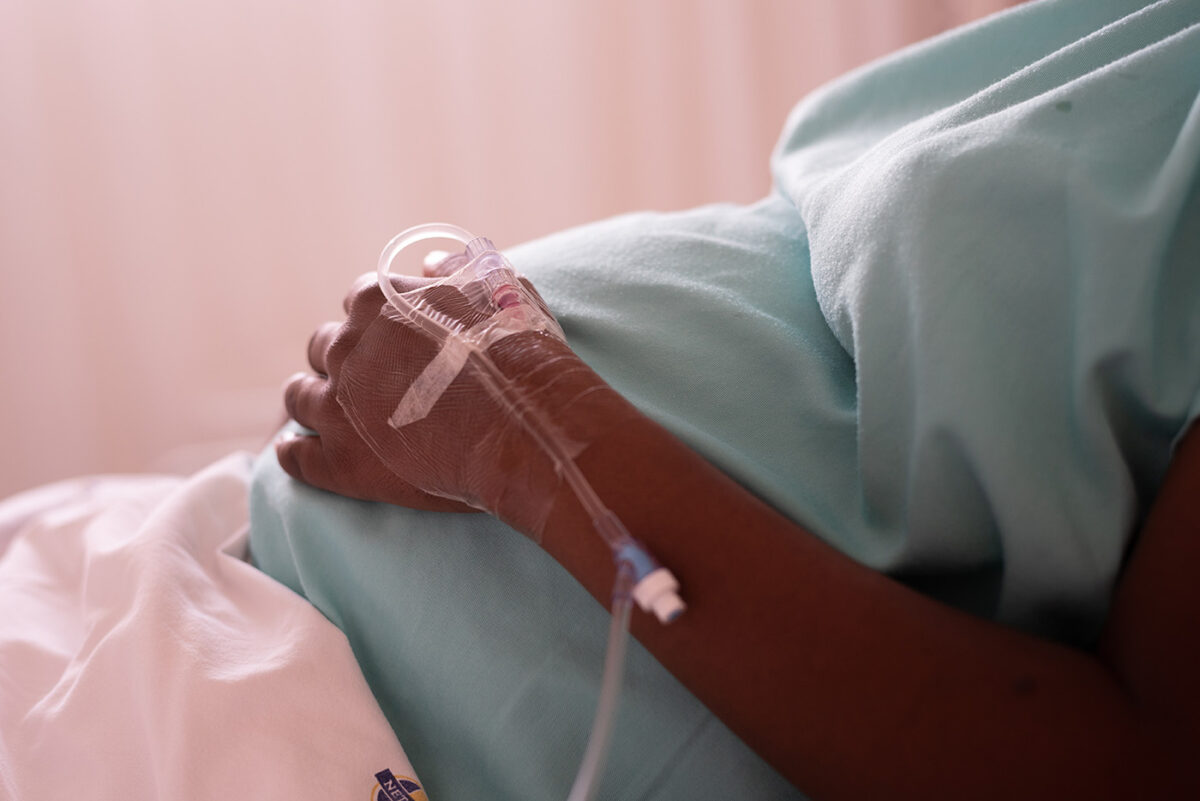
Author
John Lyon
Strategic Communications Manager
Contact
ACHI Communications
501-526-2244
jlyon@achi.net
While pregnancy and birth are often the focus when it comes to maternal health, the postpartum period, the year after a woman gives birth, is a critical time. Research shows that Arkansas mothers face a variety of health risks during this period, many of which can result in serious illness or death. As policymakers and stakeholders seek to address the state’s maternal health crisis — Arkansas has one of the highest maternal mortality rates in the U.S., and the U.S.’ maternal mortality rate is far higher than that of any other high-income nation — insight into the risks associated with the postpartum period reveals multiple opportunities for targeted improvement efforts.
Pregnancy-Related Deaths
Nearly 2 out of 3 pregnancy-related deaths in the U.S. occur in the postpartum period. The proportion is even higher in Arkansas, where 69.5% of pregnancy-related deaths occur postpartum, according to the Arkansas Maternal Mortality Review Committee. In 33.9% of pregnancy-related deaths in Arkansas between 2018 and 2021, the deaths occurred more than 42 days after the mothers gave birth.

According to the committee, the five leading causes of pregnancy-related deaths in Arkansas — including deaths before, during, or after delivery — are:
- Infection
- Cardiomyopathy
- Cardiovascular conditions
- Hypertensive disorders
- Hemorrhage
The committee estimates that 95% of all pregnancy-related deaths in Arkansas are preventable.
Severe Maternal Morbidity
While the death of a mother is the worst possible outcome, cases of severe maternal morbidity occur much more often. Severe maternal morbidity is defined by the Centers for Disease Control and Prevention as “unexpected outcomes of labor and delivery that result in significant short- or long-term health consequences.” An ACHI analysis found that the five most common types of severe maternal morbidity events in Arkansas, excluding blood transfusions and behavioral health events, are:
- Sepsis
- Adult respiratory distress syndrome
- Acute renal failure
- Pulmonary edema/acute heart failure
- Hysterectomy
Between 2019 and 2021, for every 1,000 births in Arkansas, 14.2 were associated with at least one severe maternal morbidity event up to a year after birth.

Our analysis found that severe maternal morbidity events most commonly occur during birth — 44.8% — but that 34.9% occur more than six weeks after discharge.
Postpartum Behavioral Health Events
Addressing behavioral health issues – including mental health conditions such as depression and anxiety – during the postpartum period is crucial for ensuring the well-being of new mothers. In 2021, 20% of new Arkansas mothers experienced postpartum depression, as we noted in our 9 Points on a Health Birthing Journey infographic.
An ACHI analysis found that behavioral health events — including outpatient visits, emergency room visits, and inpatient hospital stays — are much more common among Arkansas mothers in the postpartum period than in the prenatal period, or the nine months prior to a birth.

We also found that postpartum Arkansas mothers consistently have lower follow-up visit rates after an acute behavioral health-related emergency room visit or an inpatient stay compared to all women ages 18-44 in the state, despite the importance of follow-up care to ensure positive health outcomes for mothers and their newborns.
Health Insurance
Having health insurance is key to accessing care in the postpartum period, but for every 100 new Arkansas mothers in 2021, 10 had no healthcare coverage two to four months after giving birth, a statistic we included in our 100 Arkansas Moms infographic series.
Current Maternal Health Recommendations
A state committee on maternal health convened by Gov. Sarah Huckabee Sanders issued a report in September containing numerous recommendations. Sanders has proposed a budget for the 2025-26 fiscal year that includes $13 million in new Medicaid funding to support the panel’s recommendations, one of which is to improve efforts to identify postpartum women who are at risk of losing healthcare coverage and refer those women to other available coverage options.
The federal government allows states to extend pregnancy-related Medicaid coverage up to one year after a woman gives birth. Arkansas is the only state that so far has chosen not to extend pregnancy Medicaid beyond the minimum of 60 days after birth. During the 2023 regular legislative session, Rep. Aaron Pilkington sponsored a bill that sought to lengthen the coverage to one year after birth, but the bill failed to clear a House committee. Sanders has said that rather than extending postpartum Medicaid coverage, the state should do a better job transitioning women to other available coverage options after their Medicaid coverage expires.
Pilkington has filed a bill for the current legislative session that again seeks to extend pregnancy Medicaid coverage to one year after birth. Other bills related to postpartum maternal health that have been filed for the session, which began Monday, Jan. 13, include measures to require Medicaid to cover blood pressure monitors for pregnant and postpartum women and to make paid maternity leave more accessible to public school employees. Many more could be filed in the coming weeks.
Some legislators have also called for expanding the state’s trauma system, which facilitates the transport of trauma patients to the best place for appropriate treatment as quickly as possible, to include severe maternal morbidity events. In a column published in the November-December 2024 issue of the Healthcare Journal of Arkansas, ACHI President and CEO Dr. Joe Thompson endorsed this idea, noting that, “Using the infrastructure already in place for coordination of trauma care to coordinate maternal health care would require a minimal expense compared to the savings Arkansas would see in both healthcare costs and lives.”
For more resources on maternal health in Arkansas, see our topic page.






